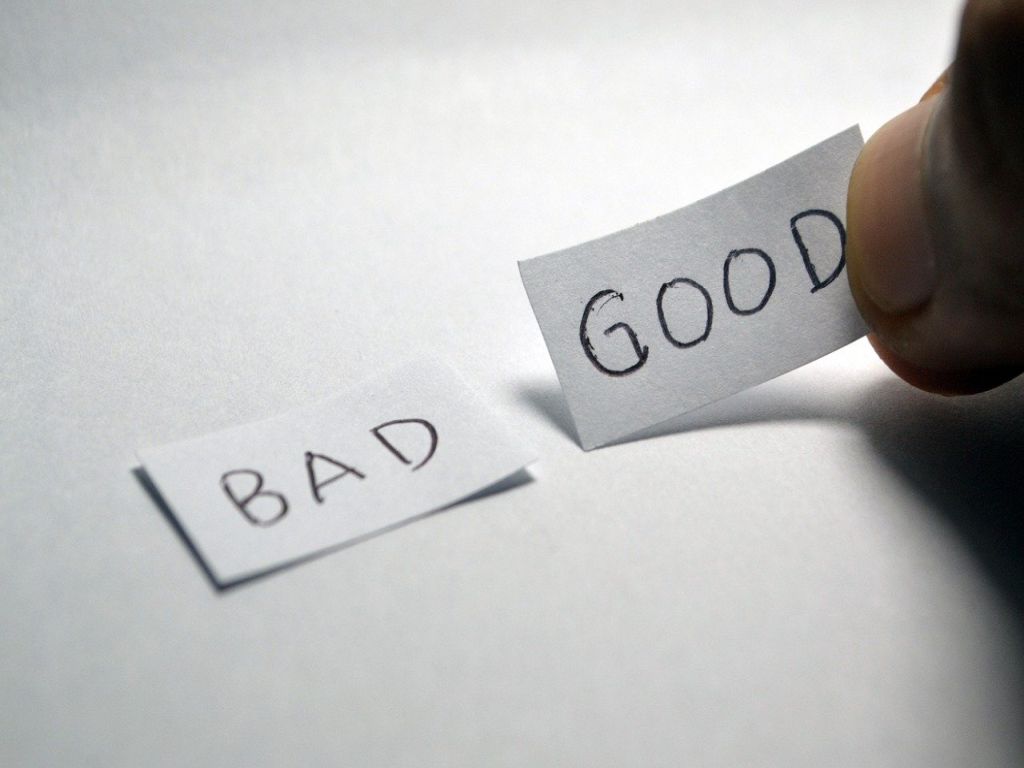What is ethics in marketing, which today is often manifested to recipients in the form of various activities. Their goal is to distinguish the brand from the competition, and thus - to increase sales and achieve profit. Of course, there is nothing wrong with that, if not for one fact. Sometimes these activities are carried out so unskillfully that they border on good taste and even professional ethics.
- What is ethics in marketing and advertising?
- Ethics in marketing - basic principles
- The benefits of ethical marketing
- Ethics in marketing and customer acquisition and sales
- Ethics in marketing and the risk to the company's image
- Marketing ethics as a recipe for success
- Real-Time Marketing - a way to deliver surprising messages, consistent with the ethics of marketing
Due to infamous exceptions, marketers and the entire public relations fall victim to unfair practices. They face accusations of manipulating the message and spreading false, aggressive messages. Are you sure all those who conduct marketing activities deserve such an opinion? In order to thoroughly analyze this problem, we should consider what exactly is ethics in marketing.
What is ethics in marketing and advertising?
Ethics, whether in marketing, advertising or any other area of life, covers all moral, social and often legal norms. Each of these aspects should be taken into account when taking any action. If we do not take up the subject of ethical principles when considering a problem and looking for solutions or ideas, there may be a social mistrust. In the case of marketing, it will be a lack of trust in our company and a serious scratch on its image.
In practice, many companies take controversial actions in order to quickly stand out from the crowd and be remembered. Then they are accompanied by the thought: "no matter how they remember you, it's important that at all". Real marketing is far from this belief and focuses on creating a brand in an ethical manner. So it is not fair to say that marketers or advertisers don't care about ethics.

These days, it's hard to stay in business by following your own ethics and values. However, many companies are successful in doing so. Including thanks to the help of professionals who can build an effective marketing campaign with their knowledge and experience. A real campaign without breaking ethical norms and rules.
Ethics in marketing - basic principles
The most important values in marketing are honesty and authenticity. As mentioned before, advertising messages must not be based on fraud and understatement. Of course, they can be surprising, shocking, or even controversial at times. However, one must not forget to act fairly. Be honest with your customers. Seek to earn their trust.
Campaigns cannot be aggressive. A brand convinced of its uniqueness may be perceived badly by consumers. Of course, knowing your strengths is important. But the key is to use them well. Do not use aggressive, profit-oriented messages. Profit matters, but lasting relationships with consumers are the most important. Building a positive image based on trust and effective communication is a recipe for success. Such activities drive profit and raise the brand's position on the market. Aggressive campaigns can bring benefits for a while, and this, unfortunately, does not have much importance in the further development and functioning of the company on the market. It will not translate into long-term success.
Is it possible to act ethically and effectively in today's market?
Check how to do it effectively!
Ethics in marketing is the lack of discrimination on the basis of sex, religion or nationality. In marketing messages, elements that encourage violence are not used, the recipient's trust, lack of experience or knowledge is not abused. Ethics in marketing is acting in accordance with the law. The rules do not allow for the promotion of forbidden things and the creation of descriptions of products or services that are inconsistent with the facts. It is also fair in relation to the competition - ethical marketing should cover all areas of activity (including communication with customers, business partners and employees as well as with competitors). Black PR it is not an effective marketing tool. "Stepping up" competitors, spreading disinformation, using manipulative moves and other attempts to discredit competition in the eyes of potential customers will always be considered unethical. A brand that engages in such behavior may be considered untrustworthy and insincere.
When designing a marketing campaign, you must take into account the values that are important to your audience. It is worth being socially involved, doing something good for the public. Support and form good habits. Show that what the society lives on is also important for the brand.
The benefits of ethical marketing
Today, in the era of very controversial advertising campaigns, dirty licks aimed only at profit, putting obstacles under the feet of competitors, playing on feelings and manipulation, ethical marketing is a mission. A mission worth taking on. Ethical marketing can bring spectacular results. It will translate into real results, increase the company's reputation on the market and lead it to success.
The benefit of ethical marketing is to improve your brand image on the market. A company that conducts ethical business strengthens its reputation. A well-chosen, well-thought-out campaign based on modern tools is the key to gaining the trust of customers. Ethical communication focused on the needs of consumers helps build lasting, positive relationships with recipients, which translates into specific consumer behavior.
Activities in accordance with the ethics of marketing evoke positive feelings about the brand, create pleasant emotions that strengthen the willingness to buy products offered by the company or use its services - and thus the brand generates profit. Remember that ethical marketing is about offering valuable products and services that can significantly improve the lives and functioning of consumers. Guided by ethics, we improve the everyday life of our clients.

An ethical business has more value. It is perceived as valuable. One that works for the benefit of society. She's doing something good for him. Such behavior is a simple way to stand out from the competition and, consequently, gain more popularity and generate higher profit.
The last, but no less important, benefit of ethical marketing is increased motivation and improved employee efficiency. Every entrepreneur should remember that the success of the company on the market is due to the entire team. All members of the company's staff - not only superiors, but also lower-level employees - play to one goal. They are aiming for the same. Every person is important. Each can bring something good to the life of the company. Therefore, it is important that ethical activities include employment standards. Ethical marketing is taking care of the good of each employee. Providing the team with appropriate conditions for the efficient and effective performance of tasks. Caring for subordinates is a recipe for creating a well-coordinated team that is highly motivated to act and wants to achieve the highest goals. He wants to climb to the top.
Ethics in marketing and customer acquisition and sales
Every activity of the company is focused on the highest possible profit. Everyone creates marketing campaigns based on the most important advantages of their company. It's okay - everyone presents themselves at their best. This way we can to gain customers and build trust that will generate profits in the future. The more customer trust we gain, the more sales we will achieve. So let's consider whether we will actually build this trust by using unethical techniques throughout the entire campaign or a single advertisement. Ones that might offend someone in some way. This practice is not an option. It is unacceptable if we want to care not only about the good customer relations, but also about the image of our brand. Otherwise, we will only be remembered in a negative sense, and customers will avoid us.
Do you want to act ethically and effectively?
Check what tools we recommend you.
Ethics in marketing and the risk to the company's image
When creating a marketing campaign, we should remember that even if we have no bad intentions and do not want to act unethically, improperly selected media - and above all their interpretation by the recipients - can make it a hotspot for unwanted discussions. As a result, it can be considered lacking in good taste. Therefore, we should take into account the fact that the lack of ethics may manifest itself in the very way of communication, and not in the intention of the brand. This unfortunately can lead to a serious one image crisis. Therefore, it is worth asking for help from qualified specialists who have skillfully conducted campaigns, even controversial ones, more than once.
It should be remembered that ethics in marketing does not agree with certain issues in the messages, including
- gender discrimination,
- discrimination based on orientation,
- making fun of socially important topics,
- raising religious topics,
- showing human or animal suffering.

At some point, when we see one or the other advertisement, we just feel that somewhere here the limits of good taste have been exceeded. Unfortunately, there are plenty of such campaigns. Moreover, many companies are following this lead, summing it up only in a humorous way. However, it should be remembered that each recipient has a slightly different sense of humor, and above all their own beliefs and life experiences. When creating a campaign, you should always remember not to offend anyone. Of course, there were also campaigns that directly referred to controversial topics, but they were mainly campaigns of a social nature. Here, however, the intention counts - their aim was to indicate important social problems.
Marketing ethics as a recipe for success
Ethical marketing is conducting advertising activities in accordance with generally accepted social principles, values that are important to society. The marketing campaign must not mislead the target audience. Such a move is the easiest way to breach consumer confidence, which, unfortunately, may adversely affect the company's position on the market. An example of unethical activity is the campaign of the Reserved brand "Polish Boy Wanted", in which a girl asked for help in finding a boy from Poland she met at a concert. The spot strongly influenced the emotions of people who willingly engaged in the search for "love". Unfortunately, after discovering that the video is only an element of the campaign promoting the brand's clothes, many people felt cheated. A wave of criticism fell on the company. She was accused of playing on the emotions of consumers, unethical behavior. Although the video hit the target group and gained great popularity, it did not bring the expected result.
Scams and false information always come to light. In the age of new technologies and Internet opportunities, everything can be quickly verified. Brands sometimes underestimate the skills and creativity of Internet users. Today, the recipient is more aware and demanding. Brand communication must be honest and adapted to today's realities. Unethical play destroys customer confidence in the brand. Even a short-term decline in brand credibility can significantly reduce the effectiveness of your marketing activities. So is it worth exposing yourself to such a risk? Definitely not! Advertising campaign must be fair. It should present the benefits of the product or service without violating the rules of ethics. A campaign focused on positive feelings is the key to building trust in the target group and maintaining good customer relationships.
In Poland, there are several institutions that watch over the ethics of brand marketing activities and promote appropriate, ethical activities in marketing. These include IAA Poland, the Office of Competition and Consumer Protection, or the Union of Associations, Advertising Council. Industry codes (eg the Advertising Ethics Code), created by organizations, are a collection of all the rules and standards that allow for the creation of ethical advertising messages. Controversial ads are quickly brought under the scrutiny of the commission. Unethical communication can have unpleasant consequences for the brand.

Real-Time Marketing - a way to deliver surprising messages, consistent with the ethics of marketing
A great way to create an interesting, fully ethical campaign is to use the so-called Real-Time Marketing, i.e. real-time marketing that reacts to current events. The tool to achieve the goal is effective internet monitoring and good use of the latest information. Usually, such messages are presented in a humorous manner, with a slight distance, but fully respect the ethical framework. In addition, thanks to this, we can offer the speed and mobility of the flow of messages - which certainly makes the recipients happy.
From a different point of view, through Real-Time Marketing, we can present a certain distance and sense of humor of our brand, while not taking away the comfort of consumers from reception. Even if someone does not fully associate the context, the availability of the Internet will quickly provide the right amount of information about the message. It is worth noting that RTM is one of the elements of an ethical approach to marketing that allows you to achieve brand popularity and success, even in one day.
As you can see, ethical marketing is possible in practice, and activities that go beyond its framework do happen, but fortunately they are still a minority. If we take a closer look at the goals of our campaign and the ways in which consumers perceive it by consumers of various social groups, we will certainly avoid being inaccurate and unethical in the marketing of our brand.
How to act ethically in a difficult market and at the same time achieve business goals? contact us, we have the right tools and we can help you do it.

